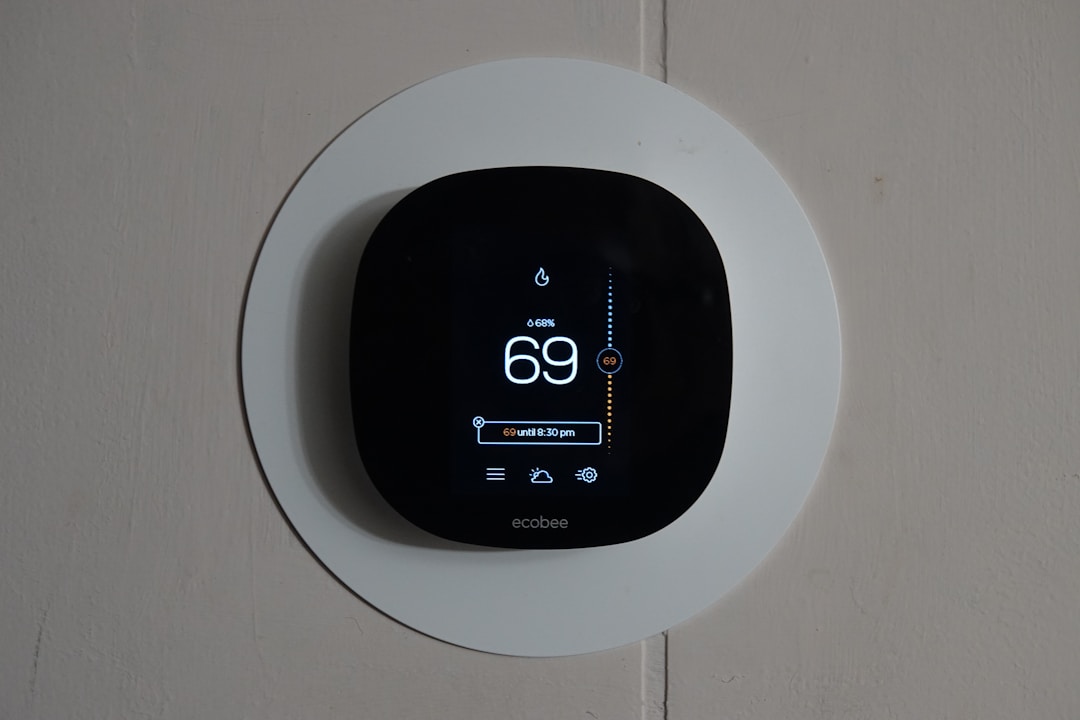As the world becomes more technologically advanced, it’s no surprise that heating and cooling systems are evolving at a rapid pace. Smart HVAC systems not only add a level of convenience to our lives but also bring about an aspect of increased energy efficiency and environmental-friendliness. However, many homeowners don’t know much about them or the advantages they offer. In this article, we will discuss some of the major aspects of the future of smart heating and cooling systems. If you want to learn more, keep reading!
The Emergence of Artificial Intelligence and Machine Learning

As HVAC systems become smarter, they will be able to learn from users’ preferences and habits and automatically adjust settings for optimal comfort levels. An HVAC company like Barker Air Conditioning and Heating can educate you about the latest advances in HVAC technology so you can utilize them in your home. They can make recommendations and assist with maintenance and repairs once your system is installed. They can also install a smart thermostat so your HVAC system will adjust the temperature based on your preferences and habits.
In the future, we can expect smart climate control systems that will draw on advanced machine learning algorithms to optimize system performance over time, regardless of any changes in your schedule, routines, or local weather conditions. By incorporating AI-driven predictive maintenance, these systems can detect and diagnose problems early, helping prevent costly repairs down the line. This saves you money and also prolongs the lifespan of your heating and cooling system.
Integration with Smart Home Systems

Another trend in smart HVAC systems is the integration with other smart home technologies. In the near future, your heating and cooling system will communicate seamlessly with other smart devices, allowing for entirely automated and highly efficient climate control. This, in turn, will help homeowners improve energy conservation, ultimately reducing utility bills and their environmental impact.
Imagine your HVAC system working in harmony with your smart blinds, adjusting sunlight exposure to regulate indoor temperature and let in natural light. Likewise, integration with voice assistants will make it easier than ever to control your living environment just by speaking a command. Smart home integration doesn’t end with typical household devices, either. Scalable smart infrastructure will allow for even larger climate control solutions, such as neighborhood or city-wide energy control systems, to be managed effectively and efficiently.
Personalized Comfort Zones
Comfort is subjective, and what feels like an ideal temperature to one person might be too hot or too cold for another. The future of smart heating and cooling systems will recognize the individual needs of each household member, creating customized comfort zones tailored to their preferences. Advanced sensors placed throughout your home will detect human presence and map out your preferred temperature zones.
These systems will then adjust the climate settings accordingly, ensuring that each room is kept at the optimal temperature to suit its occupants. In addition, weather sensors mounted outside the residence will help the system prepare for, adapt to, and manage outdoor conditions, effortlessly maintaining comfort throughout the day and night. These personalized comfort zones extend beyond just temperature, encompassing humidity and air quality as well. HVAC systems of the future will be able to monitor and adjust these factors to create an ideal atmosphere throughout your entire home.
Energy Efficiency and Environmental Impact

With increasing concerns about the environment and climate change, the HVAC industry has a responsibility to minimize its environmental impact. New smart heating and cooling systems will prioritize energy efficiency, using advanced algorithms and sensors to optimize performance and conserve power. The advent of AI-powered systems will play a significant role in energy conservation, analyzing data to predict energy demand and optimizing HVAC performance in real time.
Optimization ensures that heating and cooling systems are functioning at peak efficiency levels and that energy consumption is kept to a minimum. By adopting these intelligent HVAC technologies, homeowners will substantially reduce their carbon footprint and enjoy the added benefits of lower utility bills and a more eco-friendly home.
As you can see, the future of smart heating and cooling systems promises increased comfort, convenience, and efficiency for users. With advanced AI integration, seamless smart home connectivity, personalized comfort zones, and a commitment to energy conservation, the climate control systems of the future will revolutionize the way we experience and manage our living and working environments.





